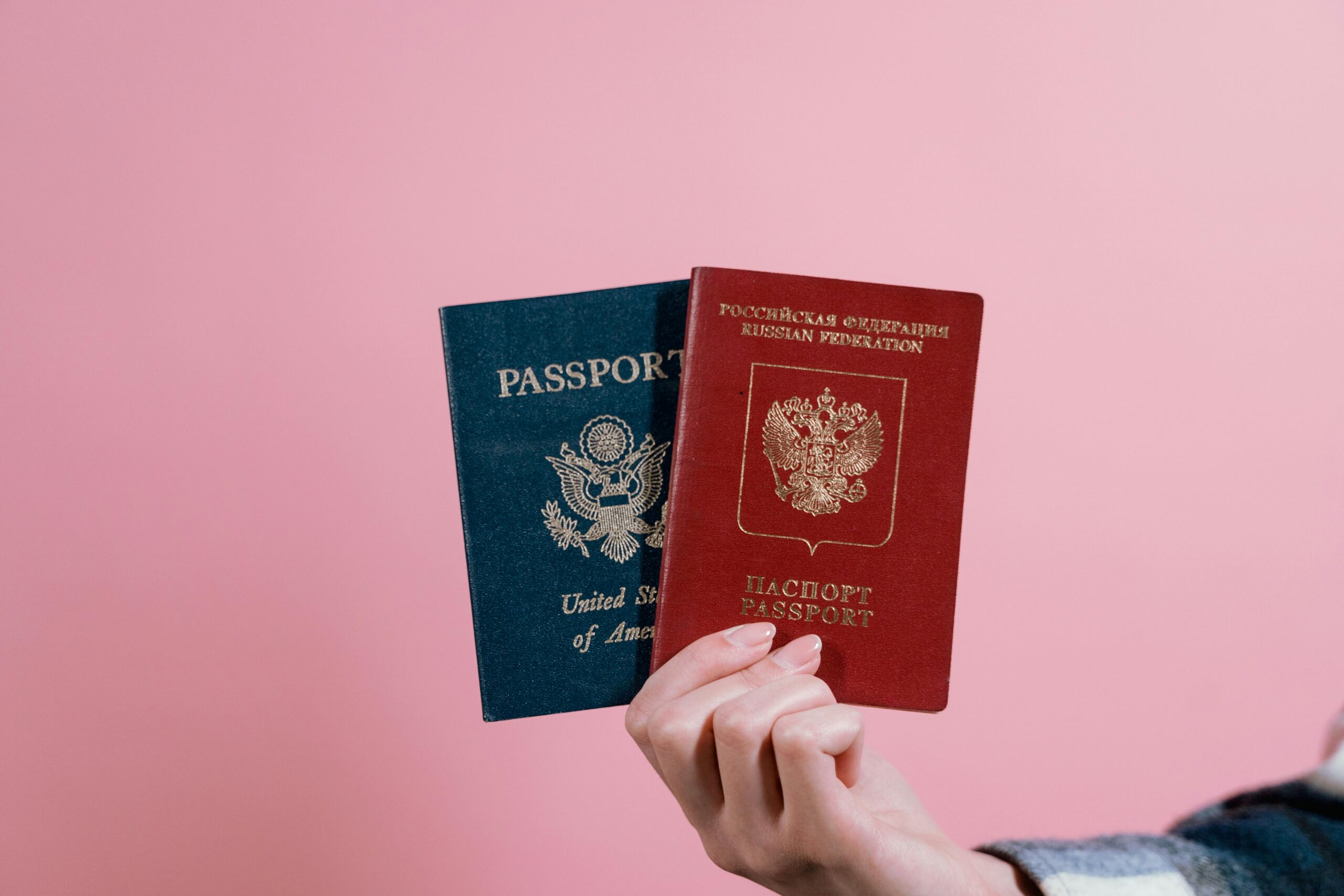Table of Contents
- Understanding Canada’s Strict Criminal Inadmissibility RulesThe Crucial Pathways to Overcome Inadmissibility for the FIFA World CupStrategic Preparations: Your Timeline for Entering Canada with a Criminal RecordProfoundly Navigating DUIs and Other Common OffensesFrequently Asked Questions
The thrill of the 2026 FIFA World Cup, co-hosted by Canada, is an unparalleled experience for football fans worldwide. The anticipation of securing tickets, planning travel, and cheering for your national team is palpable. However, for many prospective visitors, a past mistake—a criminal conviction, even one considered minor in their home country—can erect an imposing barrier to entry. Canada’s immigration laws are notably strict regarding criminal inadmissibility. A charge such as a DUI from years ago can result in being denied entry at the border, shattering carefully laid plans. This guide offers a comprehensive overview of the challenges and, more importantly, the solutions available for individuals with a criminal record who wish to travel to Canada for this historic sporting event. Understanding these pathways is the first and most critical step in ensuring you don’t miss the kick-off.
Understanding Canada’s Strict Criminal Inadmissibility Rules
Before exploring solutions, it is imperative to grasp the concept of criminal inadmissibility under Canada’s Immigration and Refugee Protection Act (IRPA). This legislation grants Canadian immigration officers significant authority to refuse entry to foreign nationals who have been convicted of a crime. The central principle is ‘equivalency.’ An offense committed outside of Canada is assessed against the Canadian Criminal Code to determine if it equates to a summary, indictable, or hybrid offense in Canada. A conviction for an act that would be considered an indictable offense in Canada, which can include crimes like theft over $5,000, fraud, or assault causing bodily harm, will almost certainly render a person inadmissible. Perhaps surprisingly for many, particularly visitors from the United States, offenses like Driving Under the Influence (DUI) or Driving While Intoxicated (DWI) are treated as serious criminality in Canada. Following changes to Canadian law, these offenses are now considered equivalent to a serious indictable offense, carrying a maximum penalty of 10 years imprisonment. This means a single DUI conviction, regardless of how it was classified in your home jurisdiction, can make you inadmissible to Canada. It is the nature of the equivalent Canadian offense that matters, not the penalty that was actually received abroad.
The Crucial Pathways to Overcome Inadmissibility for the FIFA World Cup
Fortunately, being deemed criminally inadmissible is not necessarily a permanent ban. Canadian immigration law provides several distinct mechanisms for individuals to legally enter the country. The appropriate path depends on the nature of the offense, the time that has elapsed since the completion of the sentence, and the purpose of your visit. For those hoping to attend the FIFA World Cup, understanding these options well in advance is vital.
Temporary Resident Permit (TRP)
A Temporary Resident Permit (TRP) is often the most practical solution for individuals who are otherwise inadmissible but have a specific, time-sensitive reason to travel to Canada, such as attending the World Cup. A TRP is a discretionary document that temporarily sets aside your inadmissibility for a defined period. It is not a permanent solution. To be granted a TRP, an officer must be convinced that your need to enter Canada outweighs any potential health or safety risks to Canadian society. The application requires a detailed explanation of your purpose of travel, strong evidence of your rehabilitation, and a compelling argument for why your presence in Canada is justified. For an event like the World Cup, you would include evidence of your tickets, accommodations, and itinerary. A well-prepared TRP application, whether submitted at a consulate ahead of time or, in some cases, at a port of entry, is crucial for those who do not qualify for other remedies.
Deemed Rehabilitation
Deemed Rehabilitation is an automatic process for individuals with less serious criminal records. If you have only one conviction for an act that would be a summary offense in Canada, and at least ten years have passed since the full completion of your sentence (including any probation or fines paid), you may be considered ‘deemed rehabilitated’ by the passage of time. This means you would no longer be inadmissible and would not need to file a formal application. However, this path has strict criteria. It does not apply to offenses considered ‘serious criminality’ in Canada (which, as mentioned, now includes DUIs). Determining eligibility for deemed rehabilitation can be complex, and arriving at the border assuming you qualify, only to be turned away, can be a devastating experience. It is always wise to confirm your status before making travel plans.
Individual Rehabilitation
For those with more serious convictions or multiple offenses, Individual Rehabilitation is the formal, permanent solution. This involves submitting a detailed application to Immigration, Refugees and Citizenship Canada (IRCC) to prove that you have been rehabilitated and are no longer a risk. To be eligible to apply, at least five years must have passed since the completion of all sentences. The application is extensive and requires court documents, police clearances, and a personal statement explaining your remorse and demonstrating a stable, crime-free life. While this process resolves inadmissibility permanently, it is also time-consuming, often taking a year or more to process. For anyone planning a trip to the 2026 World Cup, an Individual Rehabilitation application should have been started long ago. If you are just starting now, a TRP is your more realistic option.
Strategic Preparations: Your Timeline for Entering Canada with a Criminal Record
Successfully navigating Canada’s immigration system requires foresight and meticulous preparation. With a global event like the FIFA World Cup on the horizon, processing times for all types of applications are likely to increase. Waiting until the last minute is not a viable strategy. Your first step should be to obtain official documentation related to your past offense. This includes court records, charging documents, and proof that all fines were paid and probation or other sentencing components were fully completed. This evidence is non-negotiable for any application. Once you have your documents, you must accurately assess which pathway—TRP, Deemed Rehabilitation, or Individual Rehabilitation—applies to your specific situation. This assessment can be complicated by the nuances of legal equivalency. This is where a Legal Opinion Letter becomes an invaluable tool. Prepared by an experienced Canadian immigration lawyer, this letter analyzes your foreign conviction under Canadian law, outlines why you are not a risk, and presents a persuasive legal argument for your entry. Submitting such a letter with your TRP application can significantly strengthen your case and streamline the decision-making process for the border officer.
Here is a summary of key steps to take as you prepare for your trip:
- Assess Your Record Immediately: Do not delay. Request all court and police documents related to your conviction. The date of sentence completion is the starting point for all eligibility calculations.Determine Your Pathway: Based on the offense and time passed, identify if you might be eligible for Deemed Rehabilitation or if you need to apply for a TRP or Individual Rehabilitation. Be realistic about timelines.Compile Supporting Evidence: Gather proof of your stable life post-conviction. This can include letters of employment, proof of family ties, community involvement, and evidence of any counseling or treatment programs completed.Prepare a Compelling Narrative: For a TRP application, clearly and honestly explain the circumstances of your offense, the lessons learned, and your reasons for wanting to visit Canada for the World Cup.Seek Professional Guidance: Given the high stakes and complexity, consulting with an immigration professional can provide clarity and significantly improve your chances of a successful outcome. They can help prepare a robust application and a Legal Opinion Letter.Apply Early: Submit your application well in advance. For TRPs processed through a consulate, this could mean 6-12 months before your planned travel date. Do not book non-refundable flights or hotels until your admissibility is resolved.
Profoundly Navigating DUIs and Other Common Offenses
The most common shock for travelers, particularly from the United States, is the serious view Canada takes on impaired driving offenses. A single DUI or DWI conviction from decades ago is sufficient grounds for an entry denial. Because these are now treated as serious criminality, Deemed Rehabilitation is no longer an option for offenses that occurred after the law changed. This means that for most people with a DUI on their record, the only options are a Temporary Resident Permit or applying for Individual Rehabilitation after five years have passed. This strict stance extends to other offenses that might be considered minor misdemeanors elsewhere. Petty theft, simple assault, possession of a controlled substance, or even reckless driving can all trigger inadmissibility. The key takeaway is to never assume an offense is ‘not a big deal.’ The Canadian Border Services Agency (CBSA) has access to shared law enforcement databases and will likely know about your record. Attempting to enter without addressing the issue, or worse, misrepresenting your history to an officer, can lead to not only a refusal of entry but also a formal exclusion order, complicating future travel for years to come. Honesty, combined with proactive and proper preparation through the legal channels available, is the only sound approach for a successful visit to enjoy the beautiful game in Canada.
Frequently Asked Questions
How can I find out if my foreign offense makes me inadmissible to Canada?To determine if you are inadmissible, your foreign conviction must be compared to the equivalent offense in the Canadian Criminal Code. If it equates to an indictable or hybrid offense, you are likely inadmissible. Consulting with an immigration lawyer is the most reliable way to get an accurate assessment for your specific case.What is a Temporary Resident Permit (TRP)?
A TRP is a special permit that allows an individual who is otherwise inadmissible to enter or stay in Canada for a limited time. It is granted at the discretion of an immigration officer when the person’s reason for being in Canada is deemed to outweigh any potential risks to Canadian society.Can I apply for a TRP at the border for the FIFA World Cup?
While it is possible for some foreign nationals (like U.S. citizens) to apply for a TRP at a port of entry, it is a high-risk strategy. It is generally recommended to apply at a Canadian consulate well in advance of your travel dates to avoid being denied entry upon arrival.What does Deemed Rehabilitation mean?
Deemed Rehabilitation is a provision where, due to the passage of a significant amount of time (typically 10 years) since the completion of a sentence for a single, non-serious offense, a person is no longer considered inadmissible. It is an automatic status and does not require a formal application, but eligibility is very specific.How long does it take to get approved for Individual Rehabilitation?
The processing time for an Individual Rehabilitation application can be lengthy, often taking 12 months or more. Because of this long timeline, it is generally not a viable solution for near-term travel plans like the 2026 FIFA World Cup unless the process was initiated far in advance.
Talk to us to find out more. ->
The content above is not intended to provide legal advice or opinions of any kind and may not be used for professional or commercial purposes.







